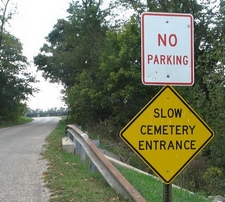There has been a lot of talk about the socio-economic status of Graeme Frost’s family and eligibility for SCHIP programs. I don’t know much about that. It’s not that I am uninterested. I have had my own experience with people trying to make me and my family, with our middle-class income, dependent on government welfare programs. But I’m more interested in his case of the issue of whether it’s right to take kids, put words in their mouths, and put them up on stage for partisan political purposes.
We seem to have an instinctive sense that it isn’t right when celebrity stage parents do it. The following is from a book review in the Wall Street Journal: The Perils of Being a Child Prodigy : Why Ervin Nyiregyházi never lived up to his potential.
In fact, “Musical Wonder Child,” part one of “Lost Genius,” might easily have been subtitled, “How Not to Raise a Prodigy.” The child of an amateur pianist and a tenor in the chorus of the Royal Hungarian Opera, Nyiregyházi was paraded around Europe performing for the social elite. Although his parents arranged quality musical training for their son, his mother banished his chess set for fear it would lure him away from music. She urged him to play Chopin’s “Minute Waltz” in less than 60 seconds and insisted he perform in short pants to heighten his marketing appeal. (He finally rebelled at the age of 17.)
We could come up with other examples like that, too. But somehow, whenever there is talk of cutting government spending, people think it’s OK to parade their kids like was done with Graeme Frost, and even put words in their mouths. Back in the mid-1990s when the new Republican Congress was battling the Clintons, some parents at the local VA was were also parading their kid in front of journalists for the sake of continued government spending. That’s when my campaign against this kind of child exploitation began.
I had already got somewhat sensitive to this issue some years earlier when my two oldest children were young, probably a little younger than Graeme Frost. I took them to a debate between Jackie MacGregor, Republican candidate for Congress against the incumbent, extreme leftist Howard Wolpe. MacGregor was a bit of an extremist herself, as am I. But she said some things I couldn’t support, and finally I just sat on my hands during her final applause lines. My kids were clapping wildly, though, along with the rest of her partisans in the crowd. I was glad I had brought them to the event, but it made me think how dangerous it is to use children this way. They knew which side their parents supported, but they weren’t old enough to think these things through themselves.
Graeme Frost is in 7th grade, so he is old enough to start thinking. The Kennedy-vs-Nixon campaign was in full swing when I was that age. Our teacher in our two-room school in rural Nebraska was at one point quizzing the kids about their political affiliation vs that of their parents. There was one 8th grade girl who supported the Democrats while her parents were Republican. The rest supported whichever candidate their parents supported. The teacher used that as evidence that only one of us was thinking for ourselves, while the rest of us were not doing so yet. That infuriated me, and I’m still angry over it 48 years later. Just because I agreed with my parents didn’t mean I wasn’t doing my own thinking. So I became a rebellious teenager — rebelling against those who said teenagers of the 1960s needed to rebel against their parents. (Well, to some extent I did, as my parents can still testify. But it in many ways I refused to do so, still angry over the implications of what our teacher had said in 7th grade.) I imagine Graeme Frost is doing some of his own thinking, too, and might be similarly resentful over what I’ve been writing here. But at that age kids shouldn’t be used as props for their parents to hide behind.
